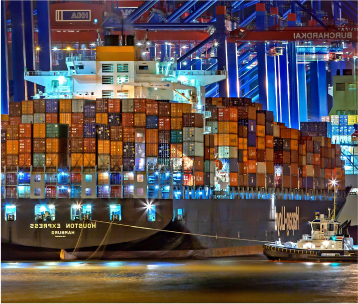Georgia Trade Freedom
Trade freedom is a fundamental concept that plays a crucial role in driving economic development and fostering prosperity. It refers to the degree of openness and absence of barriers in international trade, allowing countries to engage in the exchange of goods and services freely. In this context, Georgia, a country situated at the crossroads of Europe and Asia, has emerged as a steadfast proponent of trade liberalization. With a strategic vision toward economic growth, Georgia has made significant strides in dismantling trade barriers, embracing open markets, and attracting foreign investment. By prioritizing trade liberalization, Georgia has positioned itself as an attractive destination for global business, promoting economic dynamism and creating opportunities for both domestic and international enterprises.

Overview of Trade Policies
Georgia’s trade policies exemplify its commitment to trade freedom and fostering a conducive business environment. The country has implemented a range of measures aimed at promoting free trade and open markets, reflecting its dedication to Georgia Trade freedom. Georgia has actively pursued trade agreements and partnerships, both regionally and globally, to expand market access for its businesses. Notably, Georgia is a signatory to the Deep and Comprehensive Free Trade Area (DCFTA) agreement with the European Union, which has facilitated increased trade flows and investment.
Ease of Doing Business
Georgia’s efforts in trade liberalization and reforms have earned it recognition in international indices related to ease of doing business. For instance, Georgia has consistently ranked highly in the World Bank’s Doing Business report, reflecting its favorable business environment and streamlined procedures. The country’s commitment to Georgia Trade freedom has also been acknowledged in indices such as the Index of Economic Freedom, where Georgia has demonstrated a strong performance. These rankings affirm the positive correlation between trade freedom and the overall ease of doing business in Georgia.
Conclusion
In conclusion, Georgia’s trade freedom plays a vital role in shaping its economic landscape. Through its trade policies, commitment to open markets, and favorable business environment, Georgia has established itself as a pro-trade nation. The country’s emphasis on trade liberalization, as reflected in its participation in trade agreements and partnerships, has contributed to its overall ease of doing business. By prioritizing Georgia Trade freedom, the nation has created opportunities for entrepreneurship, attracted foreign investment, and fostered economic growth. Moving forward, Georgia remains committed to nurturing an open and liberal trade environment, recognizing its potential to drive sustainable development and prosperity for the country and its people.

Georgia embraces trade freedom, enabling growth and global economic integration.
Georgia Trade Freedom FAQ
Georgia is a signatory to the Deep and Comprehensive Free Trade Area (DCFTA) agreement with the European Union.
Trade freedom is crucial in driving economic development and fostering prosperity.
By prioritizing trade freedom, Georgia has created opportunities for entrepreneurship, attracted foreign investment, and fostered economic growth.
CONTACT US FOR ANY QUESTIONS
Core responsibilities of Human Resource Management

Common Types of HR Services
3box. Culture and different internal policies all have a significant impact on employee retention and engagement. This extremely important for growing businesses and start-ups. For sustainable growth, a big-picture strategy managed by HR professionals or service providers will be key.
It is necessary to develop and maintain a systematized framework to discover opportunities and enhance work performance, while ultimately contributing to the betterment and value of the entity.
Stay ahead in a rapidly changing world
The solution WP consulting came up with combined cutting edge technology with real world practicality. Everyone knew that the systems had to be updated, the real challenge was updating them without disrupting the whole organization in a negative way. The solution was to introduce proper workload management done through computers, while providing mobile platforms to the stakeholders.
This allowed the workers to be involved in the job instead of feeling like they had been made redundant by technology.

The biggest challenge was that Arguzo was not utilizing technology properly. Too much of the work was still being recorded manually, which meant that the numbers took a long time to note down and then to be analyzed. Live data was also not available and decisions can only be made after all the required data and been received. This was holding Arguzo back; they knew they could corner more of the market if they had the ability to be more mobile. The work addressed three critical issues for Pharm Ltd.:
The biggest challenge was that Arguzo was not utilizing technology properly. Too much of the work was still being recorded manually, which meant that the numbers took a long time to note down and then to be analyzed. Live data was also not available and decisions can only be made after all the required data and been received. This was holding Arguzo back; they knew they could corner more of the market if they had the ability to be more mobile. The work addressed three critical issues for Pharm Ltd.:
The biggest challenge was that Arguzo was not utilizing technology properly. Too much of the work was still being recorded manually, which meant that the numbers took a long time to note down and then to be analyzed. Live data was also not available and decisions can only be made after all the required data and been received. This was holding Arguzo back; they knew they could corner more of the market if they had the ability to be more mobile. The work addressed three critical issues for Pharm Ltd.: